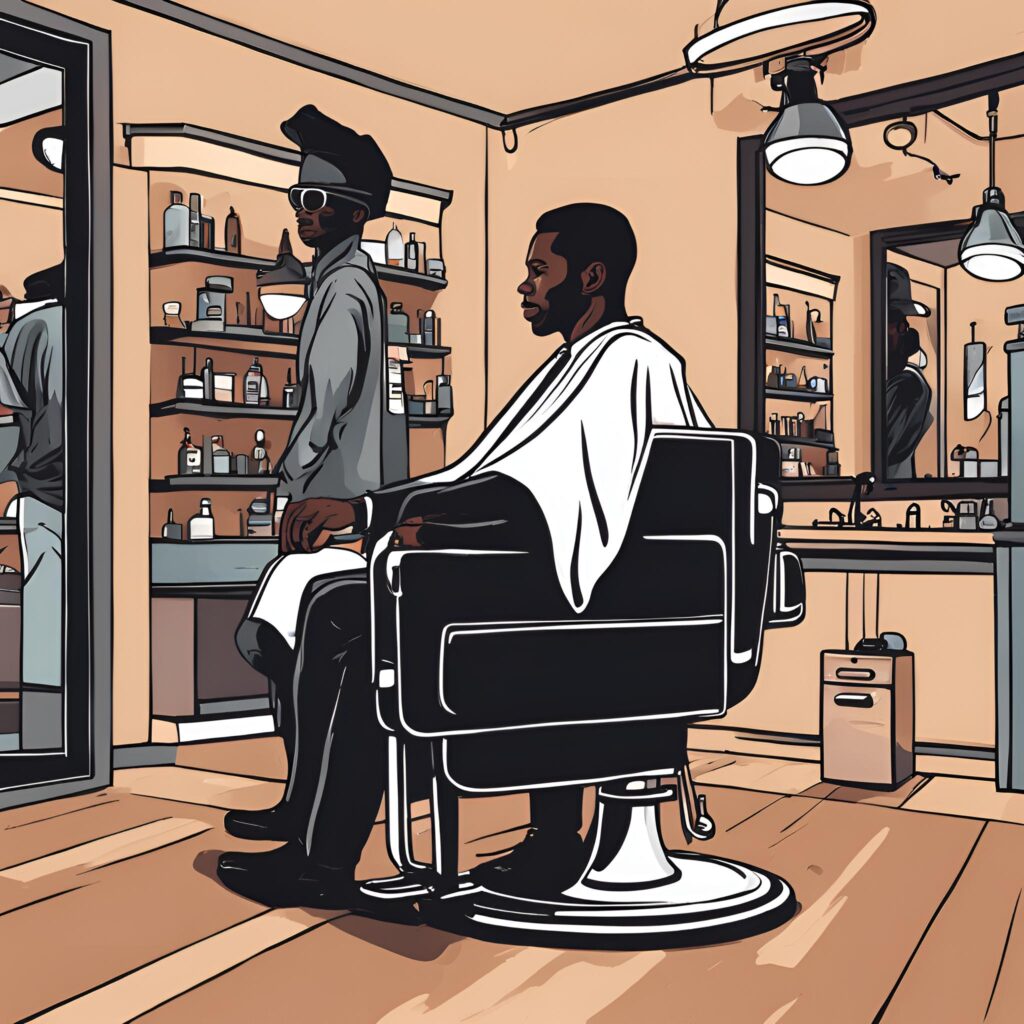The loyalty that many men exhibit toward their barbers often contrasts sharply with their behaviour’s in romantic relationships. This discrepancy raises intriguing questions about trust, commitment, and the nature of loyalty. The relationship between a man and his barber is frequently characterized by an unusual level of fidelity and consistency, yet some men seem to struggle with the same level of commitment in their personal relationships. Understanding this phenomenon requires exploring the psychological and social dynamics at play.

Firstly, the bond between a man and his barber is built on a foundation of trust and familiarity. Many men view their barber not just as a service provider but as a confidant and a friend. Over time, a barber becomes an integral part of a man’s routine, offering not just haircuts but also a space for personal conversation and advice. This ongoing interaction fosters a sense of loyalty, as the barber’s consistent presence and personal investment in the man’s grooming create a strong relational bond.
In contrast, romantic relationships involve a far more complex and multifaceted dynamic. Unlike the straightforward exchange of services and personal interaction found with a barber, romantic relationships require continuous emotional investment, communication, and compromise. The pressures of maintaining a relationship, coupled with the challenges of aligning personal desires and goals, can sometimes lead to dissatisfaction and, unfortunately, infidelity. For some men, this complexity makes it harder to maintain the same level of commitment and loyalty.
Another factor contributing to this disparity is the nature of transactional relationships versus emotional ones. A barber-client relationship is largely transactional and role-based, where the expectations are clear and the outcomes predictable. In contrast, romantic relationships are inherently more unpredictable and require navigating a range of emotional landscapes. This distinction can lead to differing levels of commitment, with the straightforward nature of a barber’s role often seeming less daunting compared to the demands of a romantic partner.
Furthermore, the social dynamics surrounding masculinity can play a role in this behaviour. Society often places strong expectations on men to be stoic and emotionally reserved, which might contribute to their challenges in maintaining emotional fidelity in relationships. The loyalty shown to a barber, who provides a non-judgmental space for personal expression, can contrast with the more demanding emotional labour required in romantic relationships. This dichotomy can lead to a situation where the familiar and predictable loyalty to a barber seems easier to uphold than the complex commitment required in personal relationships.

Lastly, it’s essential to recognize that not all men exhibit this pattern, and individual experiences vary widely. The reasons behind such behaviour are influenced by personal values, past experiences, and the specifics of each relationship. Understanding these dynamics is crucial for fostering more honest and committed relationships, where the lessons learned from loyalty in simpler relationships, like those with barbers, can be applied to romantic partnerships.
In conclusion, the apparent disparity between the loyalty men show to their barbers and their behaviour in romantic relationships reflects the complexities of human relationships and social expectations. The straightforward and consistent nature of the barber-client relationship contrasts with the multifaceted demands of romantic partnerships, revealing the challenges of maintaining commitment across different areas of life. Addressing these challenges requires a deeper understanding of emotional investment and the application of loyalty principles from simpler relationships to more complex ones.




